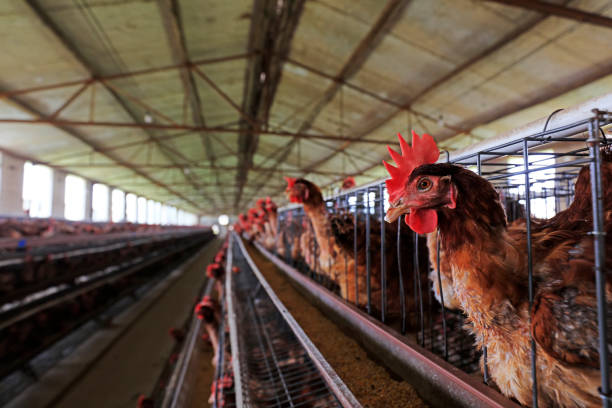Poultry Cages: Essential for Raising Healthy Chickens
2024-06-07
Poultry cages play a crucial role in modern chicken farming, providing a controlled environment for birds to thrive, ensuring their health, safety, and well-being. In this comprehensive blog post, we will explore the importance of poultry cages as an essential tool for raising healthy chickens. We will discuss the benefits of using poultry cages, key considerations when selecting cages, and best practices for maintaining a conducive environment for poultry farming.
1. Benefits of Poultry Cages
a. Improved Animal Welfare:
Poultry cages offer a structured and controlled environment that promotes the well-being of chickens. Cages provide birds with a safe and secure space, protecting them from predators and environmental hazards. Additionally, well-designed cages can accommodate the natural behaviors of chickens, such as perching, nesting, and scratching, contributing to their overall welfare.
b. Disease Control:
Poultry cages help prevent the spread of diseases among chickens by minimizing direct contact between birds and reducing exposure to pathogens in the environment. The controlled environment of cages allows for easier monitoring, cleaning, and disinfection, helping to maintain a hygienic and disease-free poultry operation.
c. Efficient Space Utilization:
Cages enable efficient use of space in poultry farms, allowing farmers to house a larger number of birds in a compact area. This space optimization can lead to increased productivity and profitability for poultry operations. Cages also facilitate easier management and monitoring of chickens, enhancing operational efficiency.
d. Protection from Environmental Factors:
Poultry cages shield chickens from adverse weather conditions, predators, and other external threats. The enclosed structure of cages provides a safe and comfortable environment for birds to thrive, regardless of external factors. This protection helps reduce stress levels among chickens and ensures their health and safety.

2. Key Considerations When Selecting Poultry Cages
a. Cage Type and Design:
Choose poultry cages that are suitable for the specific needs of your chickens, considering factors such as bird size, breed, and behavior. Select the appropriate cage type, whether battery cages or colony cages, based on the space requirements and welfare considerations of the birds.
b. Material Quality and Durability:
Opt for poultry cages made from high-quality materials that are durable, sturdy, and easy to clean. Ensure that the cages are resistant to rust, corrosion, and wear and tear, to maintain a hygienic and long-lasting housing solution for your chickens.
c. Ventilation and Air Quality:
Select cages with proper ventilation systems to ensure good air circulation and temperature control within the poultry house. Adequate ventilation helps prevent heat stress, respiratory issues, and ammonia buildup, creating a healthy environment for the chickens.
d. Cleaning and Maintenance:
Consider the ease of cleaning and maintenance when choosing poultry cages. Look for cages with removable trays, smooth surfaces, and accessible components that facilitate regular cleaning and waste removal. Prioritize hygiene to prevent disease outbreaks and promote bird health.
3. Best Practices for Maintaining Poultry Cages
a. Regular Cleaning and Sanitization:
Establish a routine cleaning schedule to remove waste, debris, and contaminants from the poultry cages. Use appropriate cleaning agents and disinfectants to sanitize the cages and prevent the spread of diseases among the birds.
b. Monitoring Bird Health and Behavior:
Regularly observe the chickens housed in the cages to monitor their health, behavior, and welfare. Keep an eye out for signs of stress, illness, or injury, and take prompt action to address any issues that may arise.
c. Providing Adequate Nutrition and Water:
Ensure that chickens in the cages have access to a balanced diet and clean drinking water at all times. Monitor feed consumption and water intake to maintain the health and productivity of the birds.
d. Enriching the Environment:
Enhance the poultry cage environment with enrichments such as perches, nesting boxes, and litter areas to stimulate natural behaviors and improve bird welfare. Provide opportunities for exercise, social interaction, and mental stimulation to keep the chickens healthy and happy.
Conclusion
Poultry cages are indispensable tools for raising healthy chickens in modern poultry farming operations. By providing a safe, controlled, and hygienic environment for birds, poultry cages contribute to improved animal welfare, disease control, space utilization, and protection from environmental factors. When selecting poultry cages, consider factors such as cage type, material quality, ventilation, and cleaning practices to ensure the well-being and productivity of your chickens. By following best practices for maintaining poultry cages and prioritizing bird health and welfare, poultry farmers can create an optimal environment for raising healthy and thriving chickens.


 English
English








